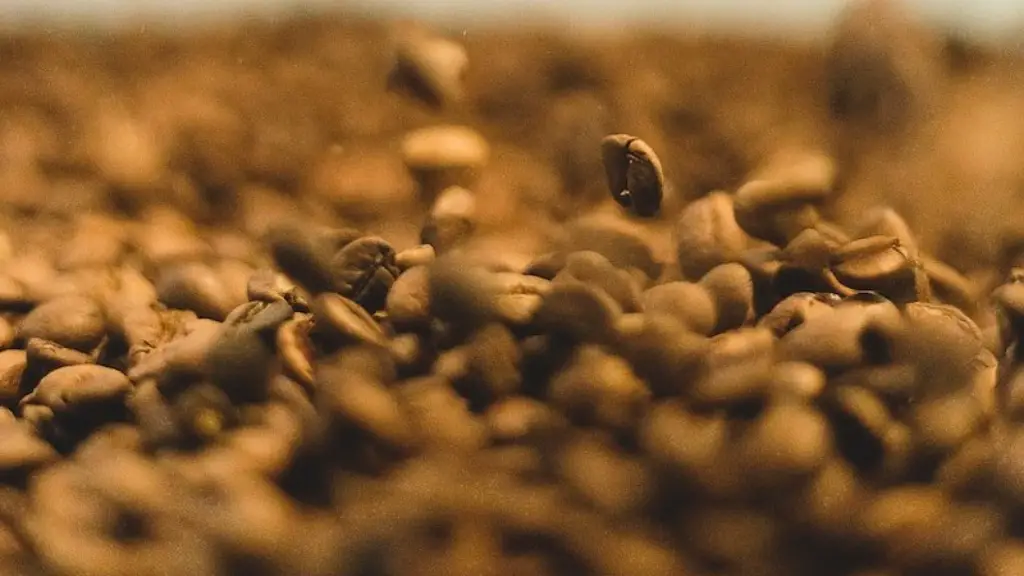Pain Management After Wisdom Teeth Removal
Having your wisdom teeth removed can be a daunting experience, and one of the questions that many people have is whether they can drink coffee after the surgery. The answer is a bit complicated and depends on individual healing, but it is generally recommended to wait until the pain and swelling are gone before drinking coffee again.
Pain management is a key element of recovery after wisdom teeth removal, and drinking coffee can actually interfere with this because it increases blood flow to the area. Caffeine is a stimulant and can cause the pain to feeling more intense since it causes the body to release adrenaline. Additionally, coffee can dry out the mouth and make it difficult to rest and take the time necessary to make a full recovery.
Swelling and bruising may also be a problem for people who have just had their wisdom teeth removed. Since coffee can act as a diuretic and increase urination, it’s best to stay away from caffeinated drinks for a few days after the surgery. It’s also important to drink plenty of water and other fluids to help flush toxins from the body and promote healing.
Of course, there are some people who prefer to drink coffee after their wisdom teeth are removed. If this is you, try to limit yourself to one cup a day and don’t drink it right away after the surgery. Wait until any pain or swelling has significantly reduced and then carefully sip the coffee. This way you can avoid undue irritation.
It’s also important to be aware of the type of coffee that you are drinking. Caffeinated coffee can irritate the mouth, so if you do decide to drink some after your surgery, opt for decaffeinated coffee. This can help to reduce the risk of any further pain or swelling.
Finally, if you are still experiencing any pain or discomfort after having your wisdom teeth removed, it’s best to speak to your dentist or doctor before drinking any coffee. They can help to advise you on what is best suited for your individual circumstances.
Nutritional Needs after Wisdom Teeth Removal
Eating a well-balanced diet is essential for the body to heal after wisdom teeth removal. Depending on how severe the surgery was, certain types of food may be off limits. Hard foods that require a lot of chewing, like raw vegetables and apples, may need to be avoided for a few days. It is important to stick to softer foods such as scrambled eggs, mashed potatoes, pancakes, and soup. In addition, it is recommended to stay away from acidic and spicy foods for a few days as well. This is because they can irritate the mouth and cause further pain.
Some additional foods to consider include yogurt, pudding, smoothies, and cooked vegetables. These foods are all packed with vitamins, minerals, and protein, which are all necessary for proper healing and recovery. Avoiding processed foods, unhealthy snacks, and sugary drinks is also important. Sugary items can increase the risk of infection and lead to further pain or discomfort.
Eating a balanced diet of whole foods is the key to proper healing after wisdom teeth removal. It is important to get the nutrients and vitamins that your body needs. Your doctor or dentist can provide you with more information on the types of foods that are best suited for recovery.
It is also important to stay hydrated after the procedure. Drink plenty of water to keep the mouth hydrated and to reduce swelling. If water is not enough, try to sip on fluids like smoothies, milk, and clear broth. Watching your intake of caffeine can help too, as caffeine can cause increased dehydration.
Activity After Wisdom Teeth Removal
It is important to take it easy during the days following surgery. Rest is key for proper healing and recovery. Take plenty of short naps and try not to tire yourself out too much. This can lead to further pain or discomfort and increase the risk of infection or complications.
In terms of activity, it is important to avoid doing anything too strenuous or that require a lot of physical strength. For example, it is best to forego any intense physical exercise for a few days. Light activities that don’t involve much movement, such as reading, watching television, or working from home, are all acceptable. Just remember to take frequent breaks and get lots of rest.
Proper rest will help to reduce pain and swelling. It is important to listen to your body and to follow any instructions given by your dentist. If you are feeling overwhelmed or uncertain about which activities are best for recovery, speak to your doctor for more information.
Schedule a Checkup After Wisdom Teeth Removal
It is important to schedule a checkup with your dentist or doctor after the procedure. These appointments are crucial to making sure that there are no complications or infections. During the appointment, your dentist will evaluate the area and take X-rays to check for signs of infection or further complications.
After the surgery, it is important to keep the area clean and free of debris. Follow the instructions given to you by your dentist or doctor. Gently rinse your mouth with water and use the prescribed medications to take care of the area. By taking these steps, you can reduce the risk of infection and further pain or discomfort.
At the post-operative appointment, these same steps should be taken. Follow any instructions given to you by your dentist or doctor. It is also important to have a proper diet and to drink plenty of fluids. Doing so can help to ensure a speedy recovery. Lastly, be sure to keep up with the follow-up appointments to make sure that everything is healing properly.
Follow-up Care After Wisdom Teeth Removal
It is important to keep up with follow-up care after having your wisdom teeth removed. This can help to ensure that there are no further complications or infections. Be sure to visit your dentist or doctor for regular check-ups and follow any instructions given.
At home, continue with the same routines and protocols. Keep the area clean and refrain from any strenuous activity. Additionally, keep up with your regular oral care routine and be sure to brush twice a day and floss daily. This can help to reduce the risk of infection and further pain or discomfort.
It’s also important to monitor your pain and swelling. If the pain is persistent or if there is any redness or inflammation, it is important to speak to your doctor or dentist. These are signs of infection and should be addressed as soon as possible.
Conclusion
The answer to the question of whether or not you can drink coffee after wisdom teeth removal depends on individual healing and the specific circumstances. However, it is generally recommended to wait until the pain and swelling are gone before drinking coffee. Additionally, it is important to take proper care of the area, to maintain a well-balanced diet, to rest, and to keep up with follow-up appointments. Doing these things can help to reduce the risk of infection and ensure a speedy recovery.





